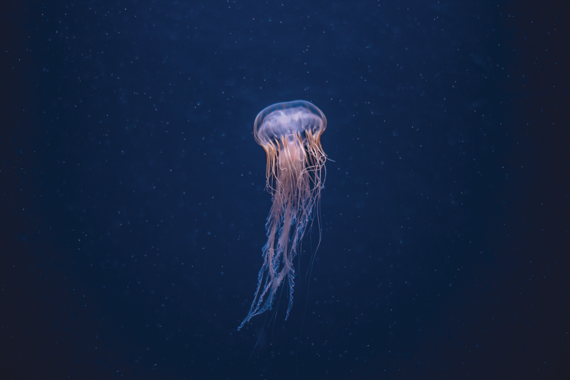
Scientists at Queen’s University, Belfast, have discovered that jellyfish are providing habitat and space for developing larval and juvenile fish.
The fish use their jellyfish hosts as means of protection from predators and for feeding opportunities, helping to reduce fish mortality and increase recruitment.
Jellyfish have long been described as ‘arguably the most important predators in the seas’, competing with adult fish for food, or by preying on eggs and larvae to reduce survivorship and recruitment of fish stocks, but the research suggests they might be much more beneficial to marine life than previously thought.
“Upon discovering that jellyfish are an important food sustenance as well as providing shelter, we thought it apt to compare them to ‘the gingerbread house’, depicting their dual benefit as a house you can eat,” said Dr Jonathan Houghton, senior lecturer at Queen’s University Belfast, writing in the Proceedings of the Royal Society B.
“The significance of the associations between fish and jellyfish really cannot be underestimated,” he adds. “Our findings indicate that a huge range of fish rely on jellyfish to survive, whether this is to protect themselves from predators, to gain sustenance, or both.”


